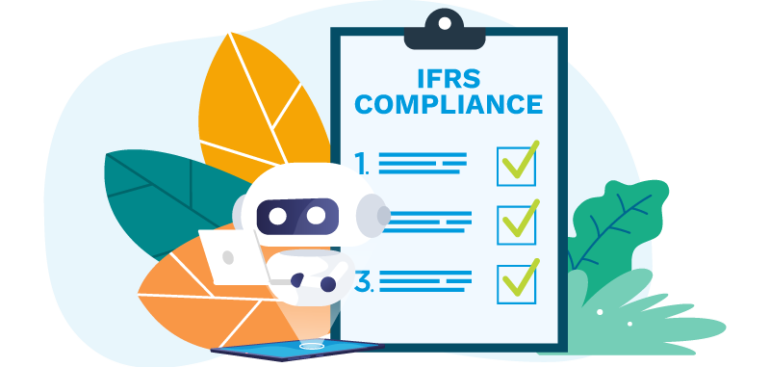In the bustling financial landscape of the UAE, adherence to global standards is not just a choice; it’s a strategic imperative. International Financial Reporting Standards (IFRS) have become the gold standard for financial reporting worldwide, fostering transparency, comparability, and reliability. For businesses in the UAE, navigating the complexities of IFRS compliance is not merely a legal requirement but a pathway to financial excellence.
In this blog, we delve into the nuances of IFRS compliance, shedding light on its significance and providing insights to help UAE businesses chart their course toward financial robustness.
1. The Foundation of Financial Transparency: Understanding IFRS Compliance
At its core, IFRS is a set of accounting standards developed by the International Accounting Standards Board (IASB) to ensure consistency and transparency in financial reporting. For businesses in the UAE, understanding the fundamental principles of International Financial Reporting Standards is the first step toward compliance. Moreover, free accounting software for small businesses with inventory can also help in setting up financial records.
This knowledge empowers financial professionals to accurately prepare and present financial statements in line with global expectations, fostering investor confidence and regulatory compliance.
2. Tailoring IFRS to UAE Regulations: Navigating the Local Landscape
While IFRS provides a universal framework, businesses in the UAE must align their financial practices with local regulations. UAE-specific nuances, tax laws, and industry requirements necessitate a nuanced approach to IFRS compliance. Expert guidance from firms like Profits Plus, well-versed in both IFRS and UAE regulations, can bridge the gap, ensuring seamless compliance while adhering to the intricacies of the local financial landscape.
3. The Impact of IFRS Compliance on Business Performance: Gaining a Competitive Edge
Beyond mere adherence, International Financial Reporting Standards compliance can significantly impact a business’s performance. Transparent financial reporting enhances credibility, fostering trust among stakeholders, investors, and creditors. Moreover, IFRS compliance facilitates accurate financial analysis, enabling businesses to make informed decisions, optimize resource allocation, and strategize for growth. In the competitive UAE market, businesses compliant with IFRS stand out, gaining a competitive edge and attracting strategic partnerships.
4. Challenges and Solutions: Overcoming IFRS Implementation Hurdles
Implementing IFRS standards can pose challenges, including complex reporting requirements, data migration issues, and staff training needs. However, these challenges can be surmounted with meticulous planning and expert guidance. Profits Plus, with its wealth of experience in IFRS compliance, offers tailored solutions. From comprehensive training programs to accounting software solutions and hands-on implementation support, businesses can overcome hurdles and embrace International Financial Reporting Standards compliance with confidence.
Conclusion
IFRS compliance is not just a regulatory obligation; it’s a gateway to financial integrity and global recognition. For businesses in the UAE, mastering the intricacies of International Financial Reporting Standards is indispensable. By understanding the fundamentals, tailoring compliance to local regulations, leveraging its impact on business performance, and overcoming implementation challenges, businesses can use IFRS with finesse.
At Profits Plus, we stand as your trusted partner in this journey. Our expertise in IFRS compliance, combined with our understanding of the UAE market, ensures that businesses not only meet regulatory requirements but also thrive in the competitive landscape. Embrace International Financial Reporting Standards compliance as more than a mandate; consider it a strategic investment in your financial future, fostering credibility, growth, and success in the vibrant business tapestry of the UAE.










